David Cameron: the Tory Party leader with royal lineage
In 2010 he became the youngest prime minister in 198 years. Now he's hoping for another term
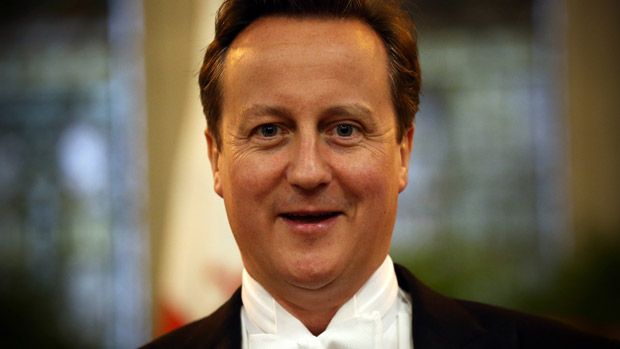
Name: David William Donald Cameron
School: Eton College
University: Brasenose College, Oxford University (first class degree in politics, philosophy and economics)
Subscribe to The Week
Escape your echo chamber. Get the facts behind the news, plus analysis from multiple perspectives.

Sign up for The Week's Free Newsletters
From our morning news briefing to a weekly Good News Newsletter, get the best of The Week delivered directly to your inbox.
From our morning news briefing to a weekly Good News Newsletter, get the best of The Week delivered directly to your inbox.
Fondness for: Bob Dylan, Mumford & Sons, spicy sausage pasta, Midsomer Murders, oatcakes with butter and cheese, watching darts and "loosely" supporting Aston Villa
What is Cameron's background?
Before he was elected Conservative MP for Witney in West Oxfordshire, Cameron worked for the Conservative Party Research Department and as a special adviser in government, first to the chancellor and then to the home secretary. He also spent seven years at television company Carlton, leaving his role as director of corporate affairs to become an MP in 2001. He held a number of positions in opposition, including shadow education secretary and shadow deputy leader of the House of Commons. In 2010 he became the youngest prime minister in 198 years. He was a member of the upper-class Bullingdon drinking club and is said to be part of the Notting Hill set. According to Wealth-X, he was worth around £3.8m in 2012.
What about his family life?
Cameron was born on 9 October 1966 to Ian, a successful stockbroker who died in 2010, and Mary, a magistrate and the daughter of Sir William Mount. According to Debrett’s Peerage, Cameron is William IV's great-great-great-great-great grandson, making him fifth cousin twice removed of the Queen. Cameron and his wife Samantha have three children: Florence, Nancy and Arthur. Their fourth child Ivan, who suffered from cerebral palsy and severe epilepsy, died in February 2009.
How did he become Tory Party leader?
Cameron took over from Michael Howard as leader of the Conservative Party in December 2005. With a mandate to modernise the party, he called for "compassionate Conservatism" and a move to the electoral centre-ground. He was initially an outsider, trailing behind David Davis and Ken Clarke, but garnered support from the press and won over his members to finally beat Davis by 134,446 to 64,398 votes.
What does he stand for?
Cameron has often argued in favour of tax cuts and welfare reforms. From day one as prime minister, he has pledged to fix the economy, cut red tape and bring down Britain's deficit. One of his big achievements in office has been legalising same-sex marriage, despite the risk of losing some Conservative voters. He has also named the huge increase in Britain's foreign aid budget as one of his proudest achievements in government. However, the party has faced much criticism for making massive public sector cuts, restricting legal aid and for its education and NHS reforms.
How popular is Cameron?
The latest Ipsos Mori poll shows that 38 per cent of the public are satisfied and 53 per cent dissatisfied with David Cameron as prime minister. His peak satisfaction rate was 57 per cent, just after the general election in 2010, but this has decreased to an average of 38 per cent this year.
What's his worst gaffe?
Cameron has faced fierce criticism from within his own party for failing to hold an EU referendum this term in office, while his promise to cut net migration to below 100,000 by next May looks set to fail. There were fears that the phone hacking charges laid against his former communications director Andy Coulson and friend Rebekah Brooks could prove highly damaging to the prime minister. Revelations that he had ridden a horse lent to Brooks by the Metropolitan Police and exchanged a series of chummy messages with the former Sun and News of the World editor appeared to verify the public's perception of a cosy relationship between politicians and the press. Coulson was later found guilty of conspiring to hack phones, while Brooks was cleared of all charges. In a couple of other embarrassing moments, Cameron managed to include a spoof Iain Duncan Smith account (@IDS_MP) in a tweet about the benefits cap and was barred by Johnny Marr from liking The Smiths.
Sign up for Today's Best Articles in your inbox
A free daily email with the biggest news stories of the day – and the best features from TheWeek.com
-
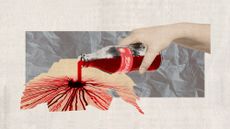 An ingredient in Coca-Cola may be funding Sudan's war
An ingredient in Coca-Cola may be funding Sudan's warUnder the Radar Global trade in gum arabic centres on the African nation – and proceeds bankroll conflict between the army and paramilitary rebels
By Harriet Marsden, The Week UK Published
-
 Homes for multi-generational families
Homes for multi-generational familiesFeature Featuring a 1900 Jacobean-style mansion in Massachusetts and a 22.5-acre compound in California
By The Week US Published
-
 The Week contest: Foot PSA
The Week contest: Foot PSAPuzzles and Quizzes
By The Week US Published
-
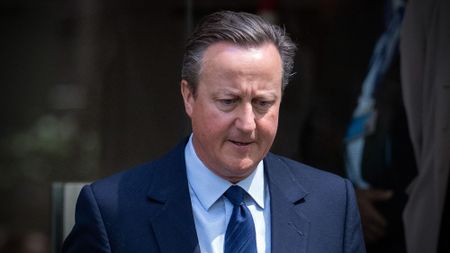 David Cameron resigns as Sunak names shadow cabinet
David Cameron resigns as Sunak names shadow cabinetSpeed Read New foreign secretary joins 12 shadow ministers brought in to fill vacancies after electoral decimation
By Arion McNicoll, The Week UK Published
-
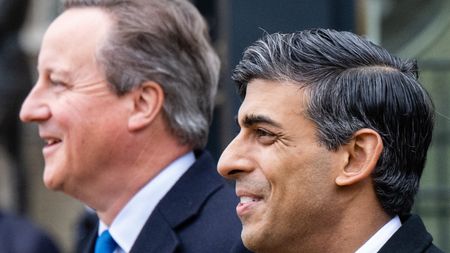 Is David Cameron overshadowing Rishi Sunak?
Is David Cameron overshadowing Rishi Sunak?Talking Point Current PM faces 'thorny dilemma' as predecessor enjoys return to world stage
By The Week UK Published
-
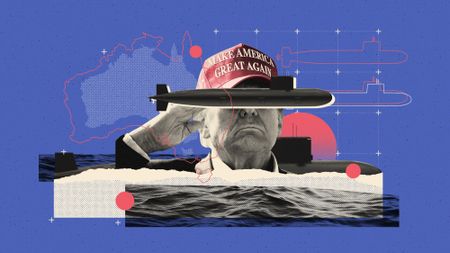 Will Aukus pact survive a second Trump presidency?
Will Aukus pact survive a second Trump presidency?Today's Big Question US, UK and Australia seek to expand 'game-changer' defence partnership ahead of Republican's possible return to White House
By Sorcha Bradley, The Week UK Published
-
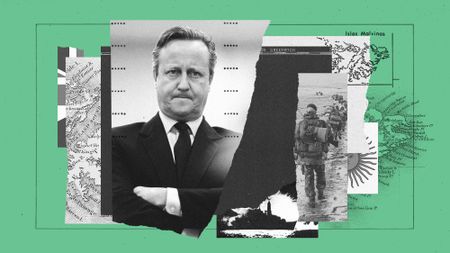 Can Cameron put the Falklands sovereignty dispute to bed?
Can Cameron put the Falklands sovereignty dispute to bed?Today's Big Question Foreign secretary says issue 'not up for discussion' ahead of visit amid renewed push from Argentina
By The Week UK Published
-
 Will America recognize a Palestinian state?
Will America recognize a Palestinian state?Today's Big Question Israeli leader Benjamin Netanyahu opposes the move. Some see it as the only route to peace.
By Joel Mathis, The Week US Published
-
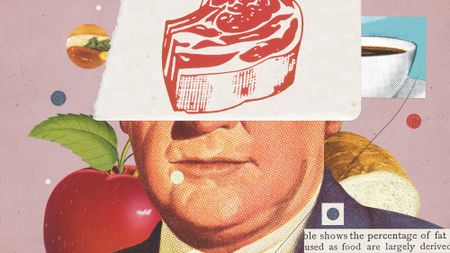 Fasting to burger buffets: the weird and wonderful diets of politicians
Fasting to burger buffets: the weird and wonderful diets of politiciansIn the Spotlight Rishi Sunak reportedly starts his week with a 36-hour fast
By Sorcha Bradley, The Week UK Published
-
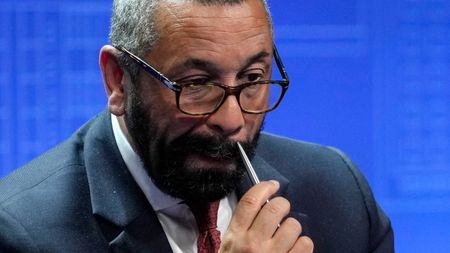 James Cleverly, Stockton North and Westminster's most memorable hot mic moments
James Cleverly, Stockton North and Westminster's most memorable hot mic momentsThe Explainer Home secretary has admitted to using 'unparliamentary' language in the Commons
By Chas Newkey-Burden, The Week UK Published
-
 David Cameron's foreign policy record examined
David Cameron's foreign policy record examinedThe Explainer The former prime minister has been appointed foreign secretary seven years after resigning as prime minister
By Keumars Afifi-Sabet, The Week UK Published